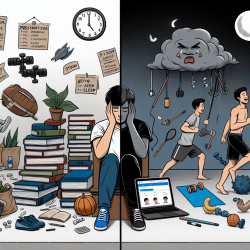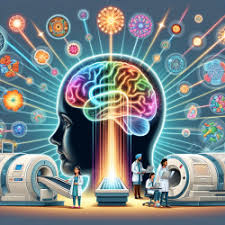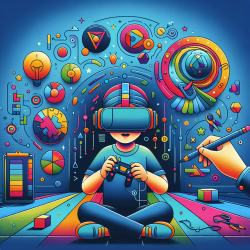Understanding the Impact of Academic Stress on Adolescents
In the world of online therapy services, creating positive outcomes for children is paramount. As practitioners, understanding the intricate relationships between academic stress, physical activity, sleep, and mental health is crucial. A recent study titled Academic Stress, Physical Activity, Sleep, and Mental Health among Chinese Adolescents sheds light on these connections, offering valuable insights for enhancing therapeutic practices.
Key Findings from the Study
The study, conducted on a sample of 1533 adolescents in China, explored how academic stress affects physical activity and sleep, and subsequently, anxiety and depression. The findings revealed that academic stress is positively correlated with anxiety and depression, while negatively impacting physical activity and sleep. Specifically, academic stress directly predicted anxiety (β = 0.54) and depression (β = 0.55), with sleep and physical activity acting as mediators.
Implications for Practitioners
As a practitioner, these findings highlight the importance of addressing academic stress in therapeutic settings. Here are some actionable steps to consider:
- Integrate Stress-Reduction Techniques: Incorporate mindfulness and relaxation exercises into therapy sessions to help adolescents manage academic stress effectively.
- Promote Physical Activity: Encourage regular physical activity as part of the therapy plan. Highlight its role in reducing anxiety and depression.
- Emphasize Sleep Hygiene: Educate adolescents and their families about the importance of adequate sleep for mental health and provide strategies for improving sleep quality.
Encouraging Further Research
While this study provides valuable insights, it also opens avenues for further research. Practitioners are encouraged to explore additional factors that may influence the relationship between academic stress and mental health, such as nutrition, screen time, and family dynamics. By contributing to this body of research, practitioners can help refine therapeutic approaches and improve outcomes for adolescents.
Conclusion
In conclusion, the study underscores the significant impact of academic stress on adolescents' mental health and highlights the mediating roles of physical activity and sleep. By integrating these findings into therapeutic practices, practitioners can better support adolescents in managing stress and enhancing their overall well-being.
To read the original research paper, please follow this link: Academic Stress, Physical Activity, Sleep, and Mental Health among Chinese Adolescents.










